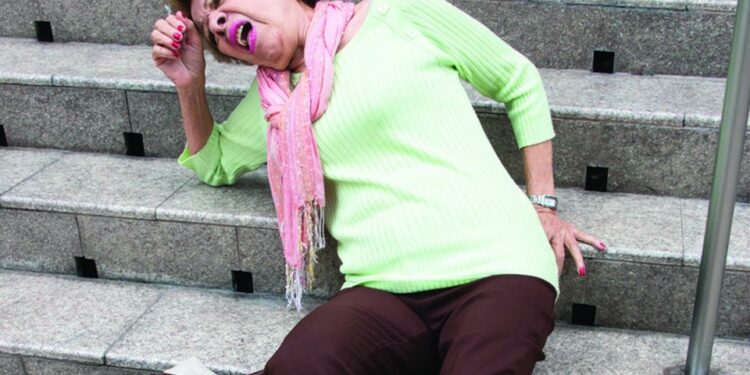Did you know falls are by far the leading unintentional injury, accounting for more than 8.7 million emergency room visits each year in the United States. One in every three adults age 65 and older falls each year, according to the Centers for Disease Control and Prevention.
Most falls are preventable. Many people attribute falls to being clumsy or not paying attention, but many risk factors exist. Physical hazards in the environment, vision, health conditions, and lack of exercise all increase the risk of a fall. Winter weather introduces an additional risk when ice and snow are on the ground. Reduce your risk and find fall hazards in your workplace and home to prevent injuries to yourself and others.
Tips for a fall-free year:r
- r
- Maintain good lighting on outdoor walkways.
- Wear sensible footwear. Consider changing from dress shoes to boots when walking outside.
- Check the condition of outdoor handrails, walkways, and steps and repair as necessary.
- Remove fallen leaves or snow from outdoor walkways as soon as possible to keep ice from forming.
- Keep your shovel and de-icing products in the garage or inside the house so you won’t have to walk on a slippery surface to get your supplies.
- Be aware that alcohol or other drugs, including prescription and over-the-counter medicine, can affect your balance and increase risk of falling.
r
r
r
r
r
r
rOlder Adult Falls. Older adults are more prone to become the victim of falls and the resulting injuries can diminish the ability to lead active, independent lives. According to the Centers for Disease Control and Prevention, the following tips can greatly help older adults prevent falls, but are beneficial to those of all ages:r
- r
- rStay active. Chances of falling can be reduced by improving strength and balance. Examples of activities include brisk walking, tai chi and yoga.
- rFall-proof your home—inside and out. This includes taking advantage of the tips above and removing indoor tripping hazards like rugs and clutter.
- rReview your medications. Have your doctor or pharmacist review all the medications you take, both prescription and over-the-counter. Some medications or combination of medicines can make you drowsy or light-headed, which can potentially lead to a fall.
- rCheck your vision. It’s best to have your vision checked at least once a year to make sure you have the best prescription for your glasses. Poor vision greatly increases your risk of falling.
r
r
r
r
rTips adapted from the National Safety Council website. For more information, including local fall prevention resources, visit safenebraska.org.













